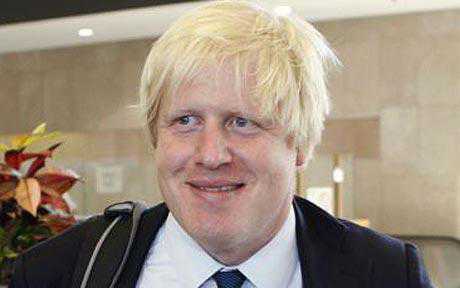Boris Johnson, the Mayor of London, has encouraged people to undergo a day of fasting to help them gain a better understanding of their ”Muslim neighbour”.

Mr Johnson’s visit coincided with the holy period of Ramadan in which participating Muslims fast from dawn until sunset.
“Whether it’s in theatre, comedy, sports, music or politics, Muslims are challenging the traditional stereotypes and showing that they are, and want to be, a part of the mainstream community,” he said.
”That’s why I urge people, particularly during Ramadan, to find out more about Islam, increase your understanding and learning, even fast for a day with your Muslim neighbour and break your fast at the local mosque. I would be very surprised if you didn’t find that you share more in common than you thought.
”Muslims are at the heart of every aspect of society. Their contribution is something that all Londoners benefit from. Muslim police officers, doctors, scientists and teachers are an essential part of the fabric of London.
”Islamic finance is contributing to the economy by changing the way Londoners invest, save, borrow and spend. There are valuable lessons that people of all backgrounds can learn from Islam such as the importance of community spirit, family ties, compassion and helping those less fortunate, all of which lie at the heart of the teachings of Ramadan.”
Earlier in the day Mr Johnson got into a spot of bother after calling a radio DJ ”a great big blubbering jelly of indecision”.
He was being interviewed by Nick Ferrari on London radio station LBC 97.3 over the ongoing row over who runs the Met. One of his deputies had told theGuardian newspaper that the Conservatives in the capital now had their ”hands on the tiller” of Britain’s biggest force.
The mayor insisted the quotes had been over-hyped but following repeated questioning from Mr Ferrari about whether he had ”admonished” the deputy in question Mr Johnson blurted out his remark.
Mr Johnson had earlier told the programme: ”Sir Paul Stephenson, as everybody knows is in full operational control of the Met and has been ever since his appointment and does a first class job.”
Source www.telegraph.co.uk, 04 Sep 2009
Also read…
Boris Johnson calls for a day of fasting to ‘help understand Muslims’, Daily Mail, 04 September 2009

Leave a Reply